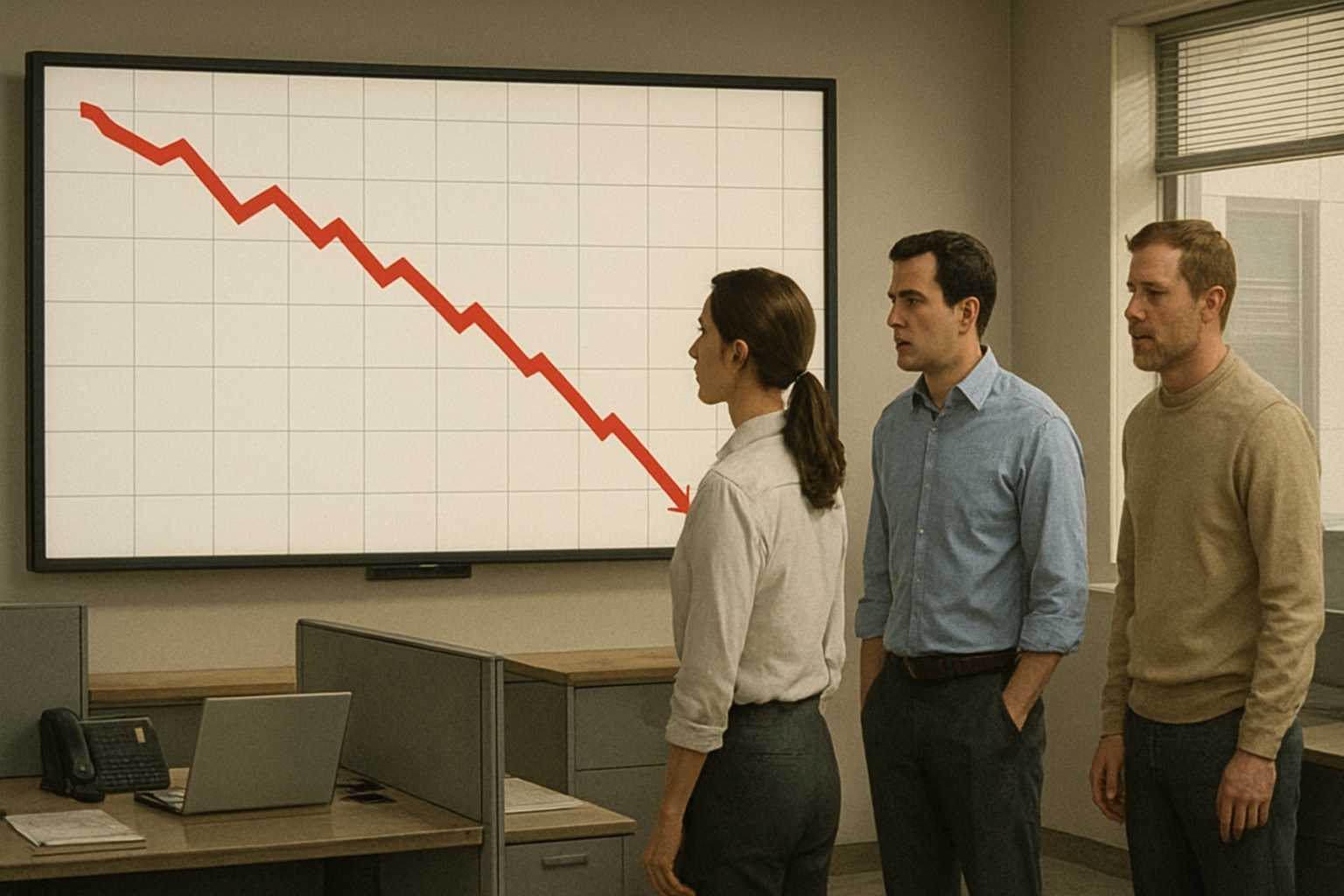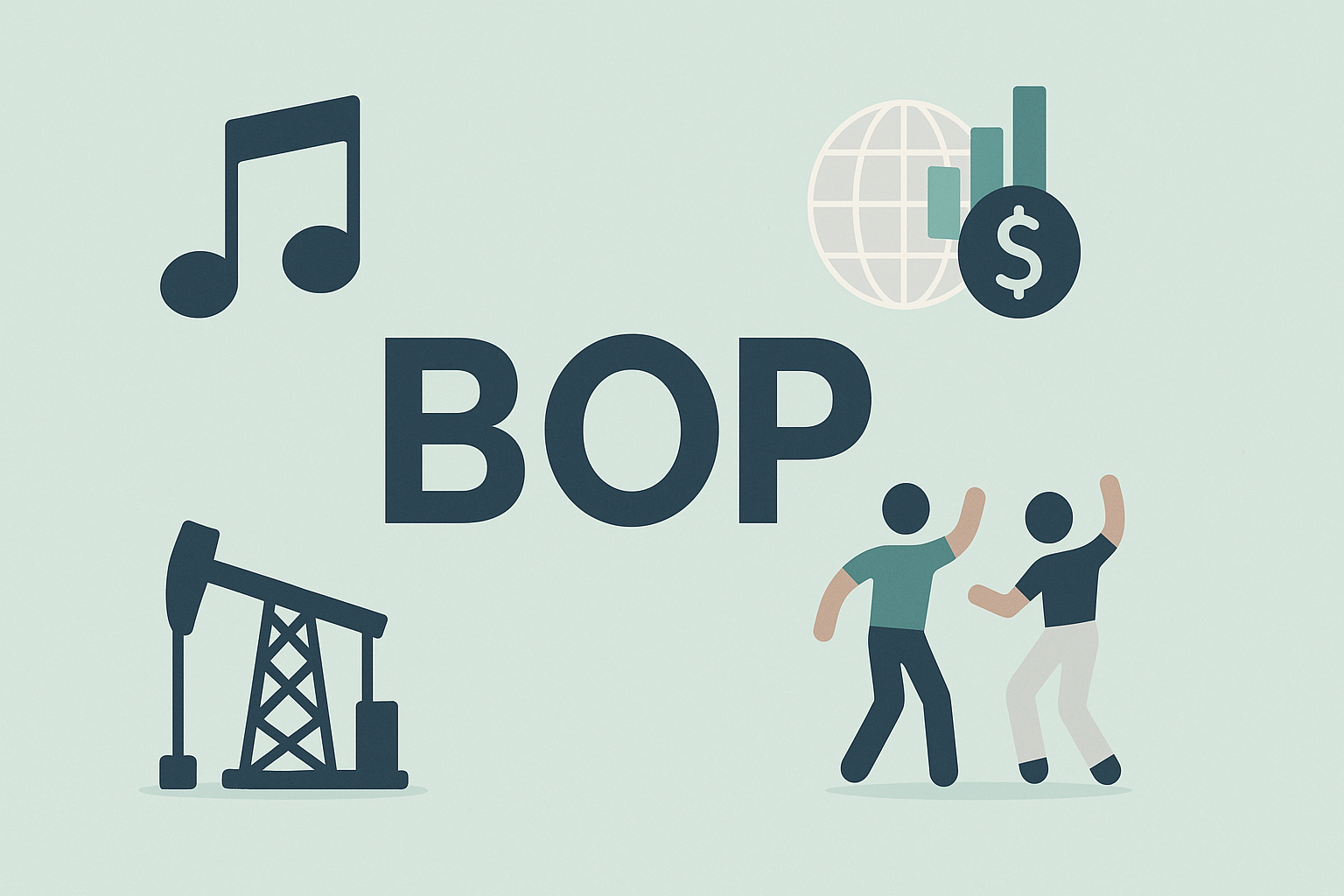The private sector just delivered a summer shocker - shedding 33,000 jobs in June when economists had predicted a gain of 100,000. That's not just missing the target; it's aiming for California and landing somewhere in Maine.
This dramatic miss has Wall Street types scratching their heads. After months—no, years—of hearing about the "remarkably resilient labor market," we're suddenly facing numbers that suggest something might be shifting beneath our feet.
Let me put this in perspective. For the past year and a half, the Fed has been hiking interest rates with the determination of a toddler reaching for cookies on a high shelf. Despite this, employers have clung to their workers like life rafts in choppy seas. The conventional wisdom? Companies were so traumatized by pandemic-era hiring difficulties that they'd rather keep unnecessary staff than risk being short-handed when business picked up again.
That thesis is now showing some cracks.
The breakdown tells its own story. Service sectors dropped 13,000 jobs while goods producers cut 20,000. Construction—often an early warning system for broader economic trouble—shed 6,000 positions. (Though as someone who's covered economic cycles since the Obama administration, I've seen construction data head-fake analysts plenty of times before.)
Now, it's worth noting that ADP figures and the official Bureau of Labor Statistics numbers don't always align. Sometimes they're like distant cousins who recognize each other at family reunions but don't really keep in touch. Friday's BLS report could tell an entirely different story.
But here's what's giving economists heartburn: this report isn't landing in isolation. Consumer spending has started to wobble. Credit card delinquencies are creeping upward. The yield curve has been inverted longer than some pop music careers.
"We're seeing the cumulative impact of restrictive monetary policy," explained Janet Maxwell, chief economist at Meridian Capital, when I spoke with her yesterday. "The surprise isn't that it's happening—it's that it took so long."
The timing makes sense if you think about it. The Fed's rate hikes work like slow-release medicine, gradually spreading through the economic bloodstream. Businesses typically exhaust all other cost-cutting measures before laying off employees. First comes the travel freeze, then the hiring freeze, then the office coffee gets downgraded... and only then do the pink slips start appearing.
Look, one month doesn't make a trend. The numbers could bounce back in July, making this look like a statistical hiccup rather than the start of a meaningful downturn. Economic data is noisy—sometimes it's like trying to hear a whispered conversation at a rock concert.
But if this does mark a turning point? The implications are significant.
For workers, it would mean the end of what has been an unusually advantageous period. The leverage to demand higher wages, better benefits, and flexible work arrangements might start to fade. For the Fed, it would suggest their "higher for longer" strategy is finally working—perhaps too well?
And for investors? Well, that's where things get weird. In the funhouse mirror logic of financial markets, signs of economic weakness could actually boost stocks if they accelerate the timeline for interest rate cuts. Nothing says "healthy market" quite like celebrating people losing their jobs because it might make your portfolio go up.
I've been covering job reports for long enough to know that June and July data can be particularly quirky. Seasonal adjustments—those mathematical machinations economists use to smooth out predictable patterns—sometimes go haywire during summer months. It's like trying to calibrate a sensitive instrument during an earthquake.
Whatever Friday's official numbers show, this ADP report has punched a hole in the narrative of economic invincibility that's dominated discussions for months. Maybe it's nothing... or maybe it's the first sign that economic gravity still exists after all.
Trees don't grow to the sky. Bull markets don't last forever. And apparently, job markets don't strengthen indefinitely either.
Though economists will probably keep predicting that they will. Some habits die hard.




